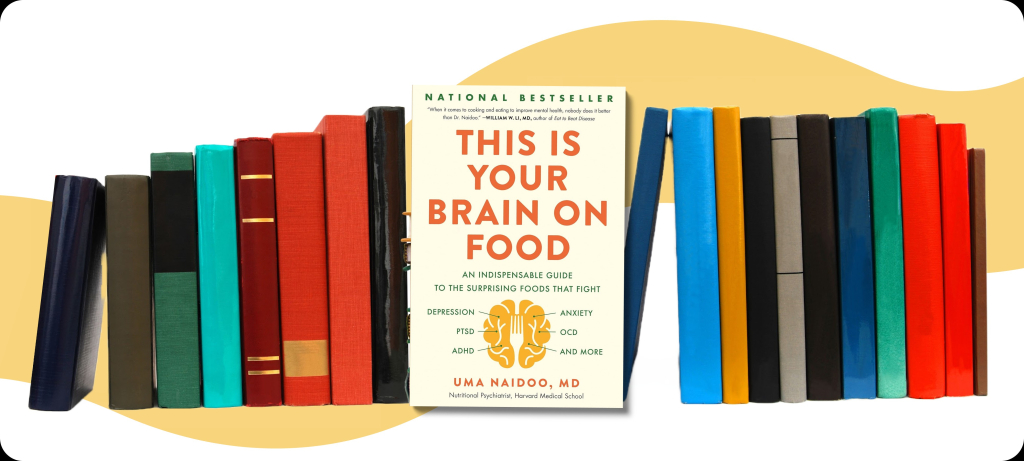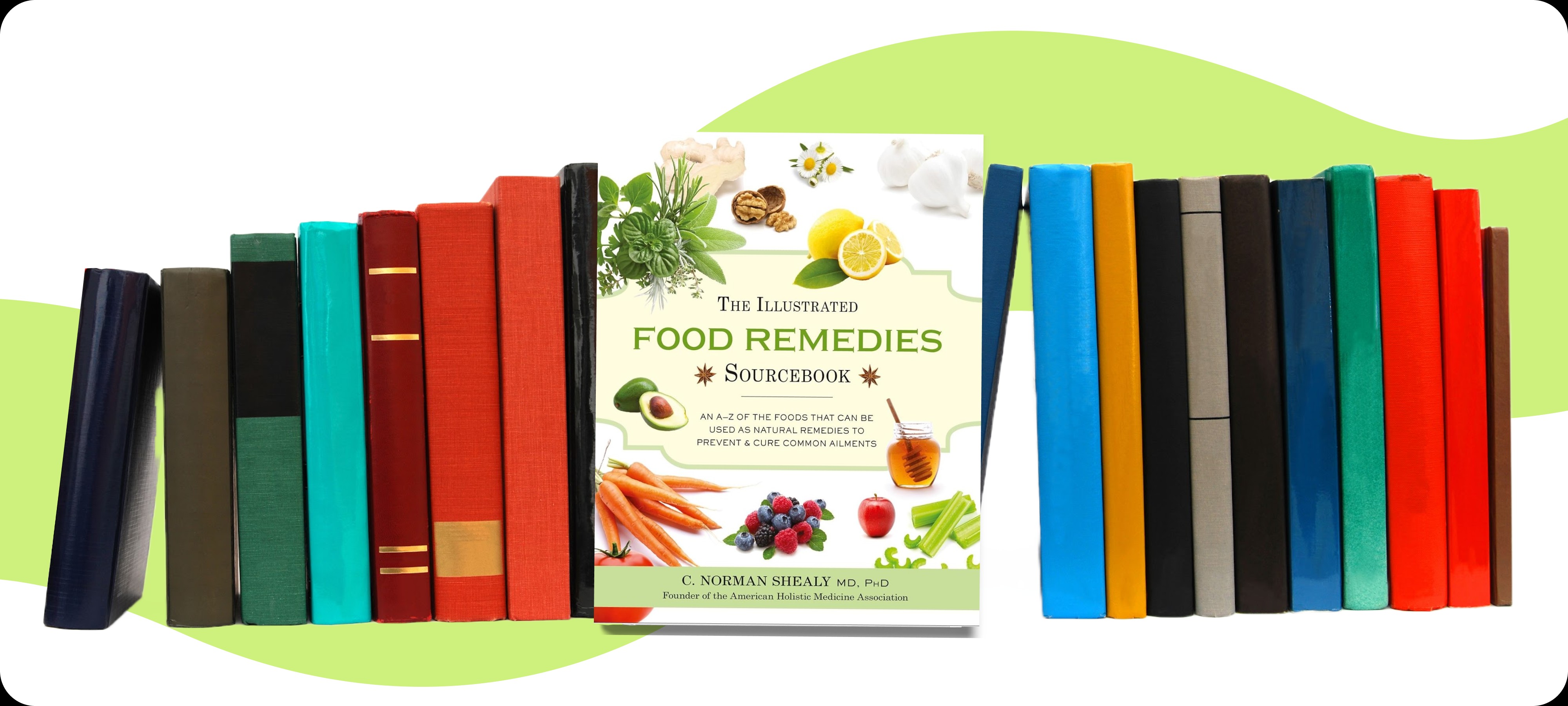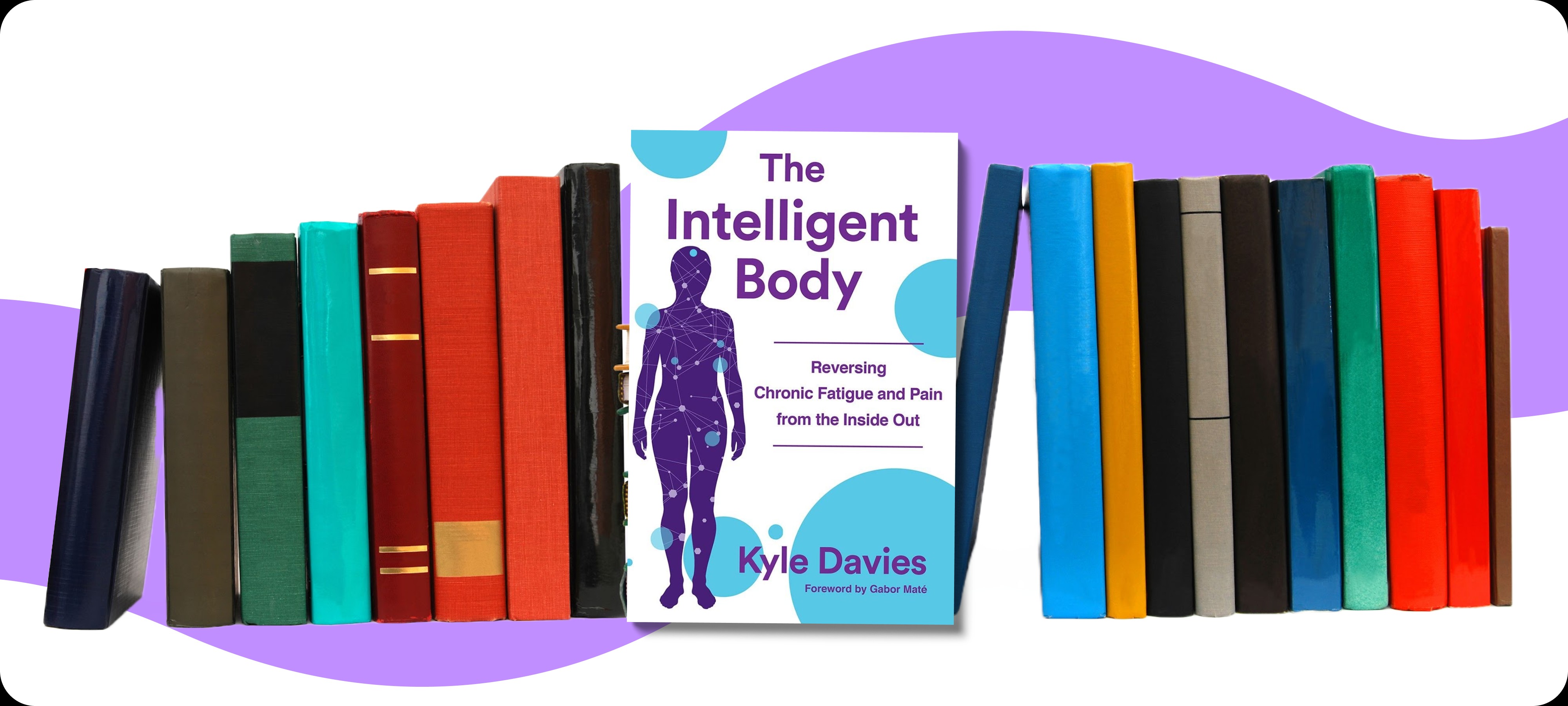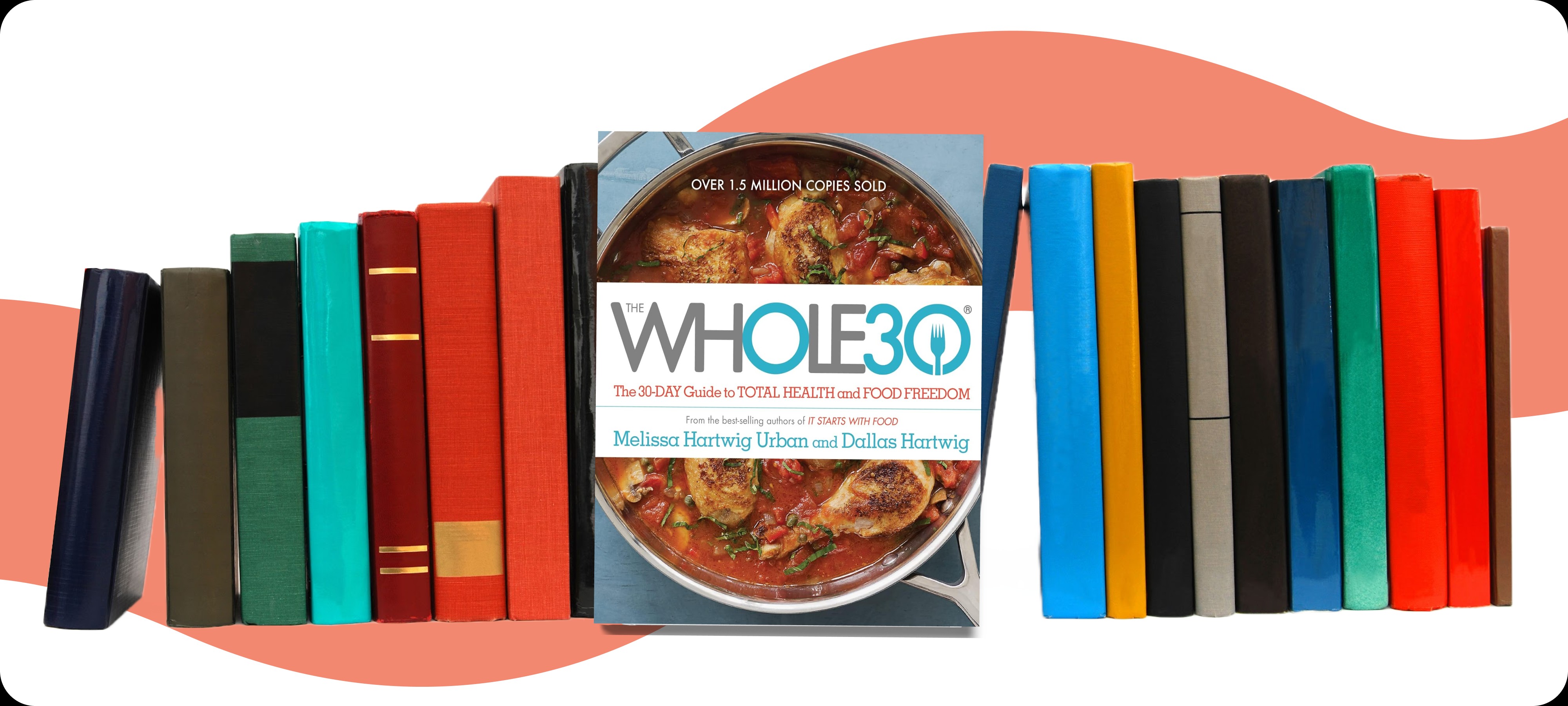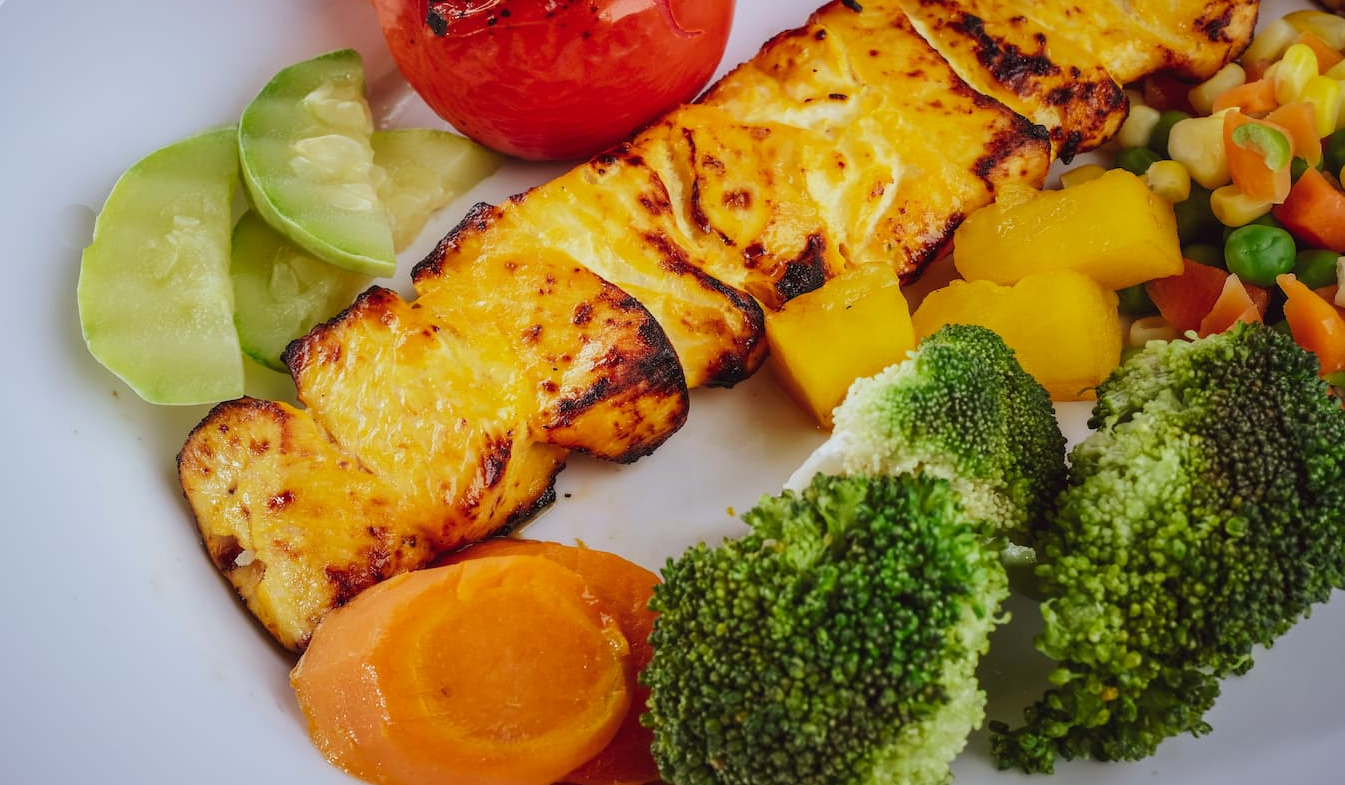In this era of growing awareness about the importance of mental health, the concept of “food as medicine” has gained momentum. Researchers and medical professionals are now recognising that dietary choices have a profound impact on our cognitive functions, emotions, and overall mental well-being.
The idea that our diets can either contribute to or alleviate conditions like anxiety, depression, ADHD, and even dementia is gaining traction. Today, we delve into a book that delves deep into this fascinating terrain – This Is Your Brain on Food by Dr. Uma Naidoo.
Author’s background

Dr. Uma Naidoo, MD, is an accomplished professional with board certification in psychiatry from Harvard Medical School, culinary expertise from the Cambridge School of Culinary Arts, and specialisation in nutrition from Cornell University.

She serves as the Director of Nutritional and Lifestyle Psychiatry at Massachusetts General Hospital (MGH), where she provides consultations for individuals dealing with psychiatric and medical issues through nutritional interventions. Additionally, Dr. Naidoo holds the position of Director of Nutritional Psychiatry at the Massachusetts General Hospital Academy and runs a private practice in Newton, Massachusetts.
She is an esteemed speaker who frequently addresses audiences at Harvard, collaborates with Goop, and engages with various institutions, including the New York City Jewish Community Center and Ivy Boston. Dr. Naidoo is an active blogger for Harvard Health and Psychology Today and has recently completed a unique video cooking series for the MGH Academy, showcasing how culinary techniques can enhance nutritional psychiatry. Her groundbreaking work in this field has led the American Psychiatric Association to invite her to author the inaugural text on nutritional psychiatry.
What is the book about?

The book delves into the vital link between nutrition and mental health, advocating for food as medicine. Dr. Naidoo introduces readers to the emerging field of nutritional psychiatry, shedding light on the transformative power of dietary changes in treating various mental health issues.
She brings a refreshing and accessible approach to complex scientific topics, making them engaging and practical. The book provides not only valuable insights but also sample menus and recipes for readers to embark on their mental health journey.
Dr. Naidoo emphasises the significance of forming healthy eating habits, highlighting the profound effect of nutrition on mental well-being. She also humorously addresses the unlikely scenario of doctors prescribing salmon recipes, underscoring the undeniable connection between mental health and diet.
Throughout the book, she explores critical subjects like the gut-brain relationship, neurotransmitters, and the microbiome, offering clear explanations and guidance for a wide range of mental health disorders.
Six key takeaways from This Is Your Brain On Food

1Food-mood connection
The book emphasizes the profound impact of nutrition on our mental health. It discusses how certain foods and dietary patterns can influence mood, cognition, and emotional well-being.
2Gut-brain axis
Dr. Naidoo explores the gut-brain connection, highlighting the bidirectional relationship between the gut and the brain. She explains how the microbiome (the collection of microorganisms in the gut) can affect mental health and offers strategies for improving gut health through diet.
3Nutrient deficiencies
The book identifies common nutrient deficiencies that can contribute to mental health issues, such as depression and anxiety. It provides guidance on how to address these deficiencies through dietary choices and supplementation.
4Inflammatory foods
Dr. Naidoo discusses the role of inflammation in mental health conditions. She explains how consuming a diet high in inflammatory foods can contribute to mood disorders and offers advice on adopting an anti-inflammatory diet.
5Mindful eating
Dr. Naidoo encourages readers to practice mindful eating, paying attention to their food choices and how they make them feel. Mindful eating can help individuals make healthier dietary decisions that support their mental well-being.
6Recipes and meal plans
The book includes recipes designed to promote brain health and emotional balance. These practical tools can help readers incorporate the principles discussed in the book into their daily lives.
1. Personal Stories: Throughout the book, Dr. Naidoo shares personal anecdotes and patient stories to illustrate the real-world impact of dietary changes on mental health.
2. Holistic Approach: “This Is Your Brain on Food” advocates for a holistic approach to mental health that combines nutrition, lifestyle, and traditional therapeutic methods.
3. Practical Strategies: The book offers practical strategies for improving one’s diet and overall mental well-being. It provides actionable steps that readers can take to make positive changes in their lives.
Table of contents

- Dedication
- Introduction
- CHAPTER 1: The Gut-Brain Romance
- CHAPTER 2: Depression: Probiotics, Omega-3s, and the Mediterranean Eating Pattern
- CHAPTER 3: Anxiety: Fermented Foods, Dietary Fiber, and the Tryptophan Myth
- CHAPTER 4: PTSD: Glutamates, Blueberries, and “Old Friends” Bacteria
- CHAPTER 5: ADHD: Gluten, Milk Caseins, and Polyphenols
- CHAPTER 6: Dementia and Brain Fog: Microgreens, Rosemary, and the MIND Diet
- CHAPTER 7: Obsessive-Compulsive Disorder: NAC, Glycine, and the Dangers of Orthorexia Nervosa
- CHAPTER 8: Insomnia and Fatigue: Capsaicin, Chamomile, and Anti-Inflammatory Diets
- CHAPTER 9: Bipolar Disorder and Schizophrenia: L-Theanine, Healthy Fats, and the Ketogenic Diet
- CHAPTER 10: Libido: Oxytocin, Fenugreek, and the Science of Aphrodisiacs
- CHAPTER 11: Cooking and Eating for Your Brain
- Acknowledgments
- Discover More
- About the Author
- Appendix A: Glycemic Load of Carbohydrates
- Appendix B: Common Sources of Vitamins and Select Minerals
- Appendix C: Antioxidants and ORAC
- Notes
Strengths and weaknesses, according to readers’ reviews

Strengths
-
Expertise: Dr. Uma Naidoo’s credentials as a board-certified psychiatrist, nutrition specialist, and professional chef lend credibility to her insights and recommendations in the book.
-
Comprehensive approach: The book covers a wide range of mental health conditions and their connections to nutrition, providing a holistic view of the topic.
-
Practical guidance: The inclusion of brain-healthy recipes and meal plans offers readers actionable steps to implement dietary changes that support mental well-being.
-
Accessible writing: Readers appreciated the author’s engaging and understandable writing style, which makes complex scientific concepts more approachable.
Weaknesses
-
Questionable research: Some readers expressed concerns about the quality of studies cited in the book, particularly those based on correlations rather than causation. They felt that the book may overstate the evidence supporting certain claims.
-
Weight bias: Several reviewers mentioned the presence of weight bias and stigmatising language in the book, which made it challenging to read. This issue may alienate some readers.
-
Lack of Mention of GMOs: Some readers noted that the book did not address the topic of genetically modified organisms (GMOs) in food, which is an important consideration for those interested in food as medicine.
Best quotes from This Is Your Brain On Food

“If you see an old partner who cheated on you, you might instantly become nauseous. If you drive down a street where you ate a delicious meal, you may start to salivate and your stomach might grumble. Given that your gut “remembers,” it should come as no surprise that it works hand in hand with your brain’s memory systems. The key to that connection lies in the chemicals that make your brain and body function, many of which are regulated by your gut.”
“In a sense, eating poorly can be a kind of nutritional castration, no matter what your age or gender.”
“Drinking caffeine is a double-edged sword. On the one hand, it does make you more alert. On the other, if it prevents you from sleeping well, you will be less alert the following day. Researchers refer to this as the “sleep sandwich” effect, where sleep is sandwiched between two days of caffeine consumption, getting slowly squeezed down to fewer hours.”
Final takeaway

This Is Your Brain on Food promotes the idea that the right food choices and dietary habits can play a pivotal role in healing the mind, body, and soul. The book encourages readers to take control of their health and explore the potential of dietary changes as a lasting solution, challenging the status quo of relying solely on medication.
This enlightening book is a valuable resource for those dealing with mental health issues or seeking to support loved ones. It provides a comprehensive guide to the intersection of nutrition and mental well-being, offering hope and practical solutions for those on their healing journey.
Where to buy
You can buy This Is Your Brain on Food: An Indispensable Guide to the Surprising Foods that Fight Depression, Anxiety, PTSD, OCD, ADHD, and More on Amazon. It’s available in hardcover and audio formats.

